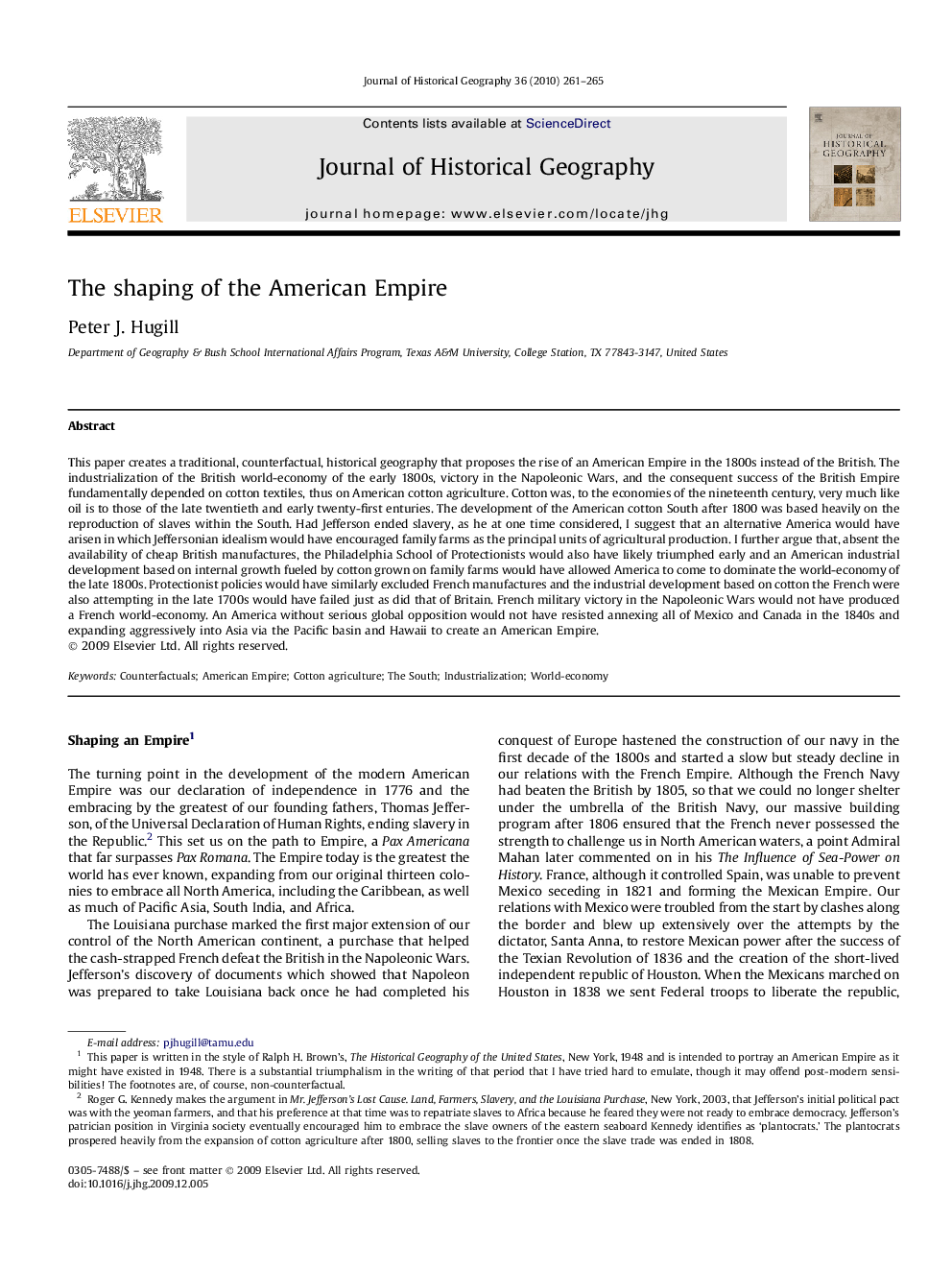| Article ID | Journal | Published Year | Pages | File Type |
|---|---|---|---|---|
| 1039239 | Journal of Historical Geography | 2010 | 5 Pages |
This paper creates a traditional, counterfactual, historical geography that proposes the rise of an American Empire in the 1800s instead of the British. The industrialization of the British world-economy of the early 1800s, victory in the Napoleonic Wars, and the consequent success of the British Empire fundamentally depended on cotton textiles, thus on American cotton agriculture. Cotton was, to the economies of the nineteenth century, very much like oil is to those of the late twentieth and early twenty-first enturies. The development of the American cotton South after 1800 was based heavily on the reproduction of slaves within the South. Had Jefferson ended slavery, as he at one time considered, I suggest that an alternative America would have arisen in which Jeffersonian idealism would have encouraged family farms as the principal units of agricultural production. I further argue that, absent the availability of cheap British manufactures, the Philadelphia School of Protectionists would also have likely triumphed early and an American industrial development based on internal growth fueled by cotton grown on family farms would have allowed America to come to dominate the world-economy of the late 1800s. Protectionist policies would have similarly excluded French manufactures and the industrial development based on cotton the French were also attempting in the late 1700s would have failed just as did that of Britain. French military victory in the Napoleonic Wars would not have produced a French world-economy. An America without serious global opposition would not have resisted annexing all of Mexico and Canada in the 1840s and expanding aggressively into Asia via the Pacific basin and Hawaii to create an American Empire.
